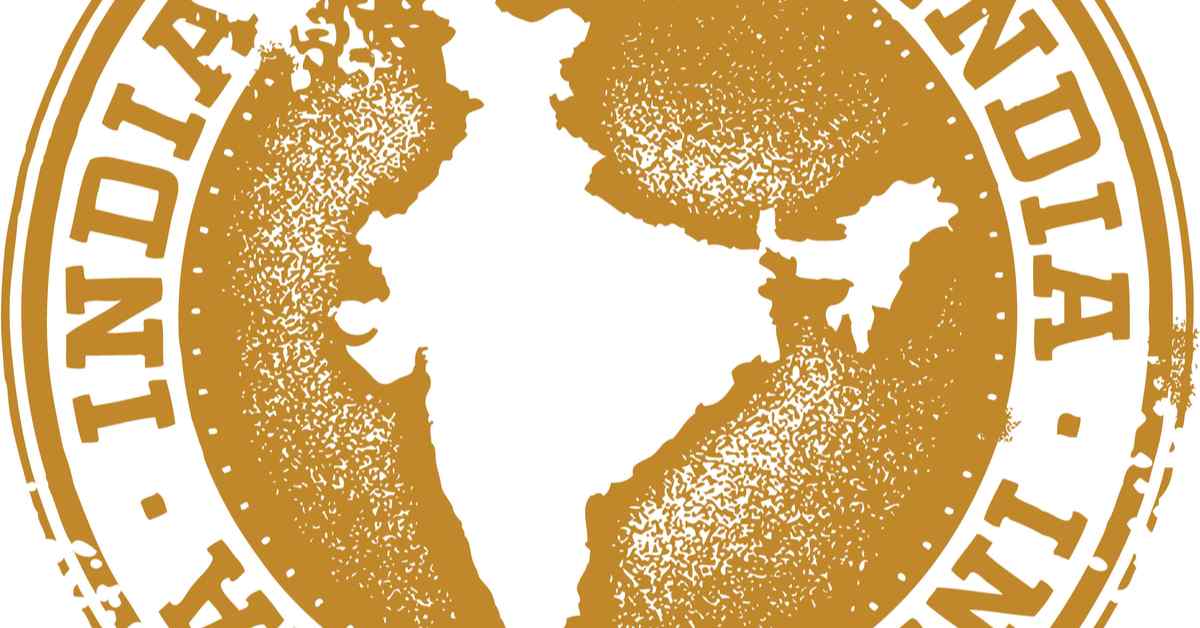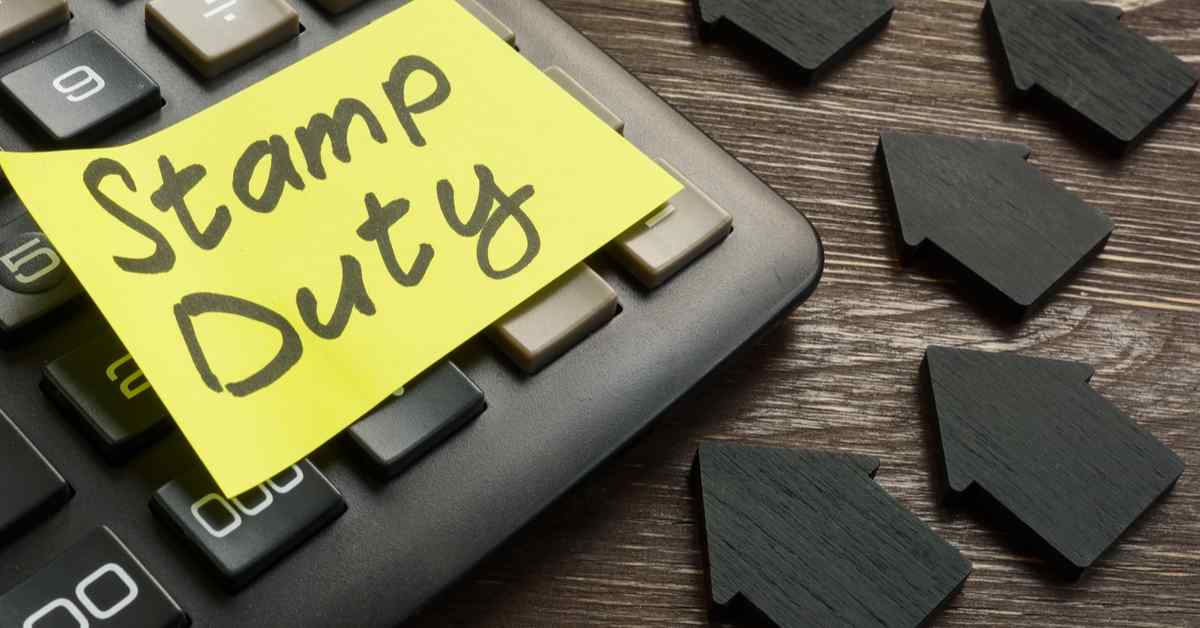Table of Contents
Quality Service Guarantee Or Painting Free

Get a rental agreement with doorstep delivery

Find the BEST deals and get unbelievable DISCOUNTS directly from builders!

5-Star rated painters, premium paints and services at the BEST PRICES!
Loved what you read? Share it with others!


Submit the Form to Unlock the Best Deals Today
Help us assist you better
Check Your Eligibility Instantly

Experience The NoBrokerHood Difference!
Set up a demo for the entire community
What is Stamp Duty: Calculation, Charges and Documentation 2025
Table of Contents
Stamp duty is a compulsory tax levied by the government over the transfer of property rights. Let’s thoroughly understand what stamp duty is and why is it important for a property owner.
What is Stamp Duty?
Stamp duty represents an extra expense when acquiring real estate, so it's crucial to comprehend how it varies based on the property's characteristics and location before purchasing it.
Stamp duty charges are slightly higher in India as compared to most of the underdeveloped, developing and even developed countries. In most countries, stamp duty ranges between 1% to 5%, while in most of the major states of India the charges are higher than 5%.
Quality Service Guarantee Or Painting Free

Get a rental agreement with doorstep delivery

Find the BEST deals and get unbelievable DISCOUNTS directly from builders!

5-Star rated painters, premium paints and services at the BEST PRICES!
What is Judicial and Non-Judicial Stamp Duty?

Judicial and non-judicial are the two categories of stamp duties in India. While the non-judicial charges include stamp duty imposed on all real estate transactions, as a one-time payment on the overall value of the agreement, judicial stamp duties, also known as court fee, are charges imposed by the court over litigants.
The highest stamp duty revenues received by states, comes from sale deeds or conveyance tax.
What is a Registration Charge?
Although paid for the same property value the reason for paying and the ways to calculate stamp duty and registration charge, vary. How much stamp duty you are required to pay completely depends upon the transaction value of your property, however, the registration charge is a fixed cost property buyers pay for the service of adding a deed or contract in government records.
For the registration fee you pay, the government is liable to maintain a registry of your documents. Registration charge is a must because it lends inviolability to your documents that would otherwise not be legally bindable.
The process in which the registration of documents takes place is also mentioned in the Indian Registration Act, 1908.
How Stamp Duty & Registration Fees Are Calculated in India?

Stamp duty charges are applied on a circle rate so that in case a property is being owned at a transaction value lower than the prevalent circle rates, it can be applied on the circle rate value of the property. However, if the property transaction value is higher than the prevalent circle rate value, stamp duty will be charged as per the original value of the deal and not over the circle rate. To be precise, the stamp duty is calculated based on the value of the original transaction or the circle rate, whichever is higher.
Factors that Affect the Evaluation of the Stamp Duty

Age of the owner:
How much you need to pay for the stamp duty depends somewhat on the age of the person on whose name the property will be registered. In case the owner is a senior citizen, you might get some rebate or discounts. This rule can differ in different states.
Location of the property:
Stamp duty is different for the properties that are considered inside the municipal limits of a city, as compared to the properties that fall outside the municipal limits. The charges are higher in case of the former. Also, whether the property you are planning to buy is a part of a city, a rural area, a metropolitan, or a suburb, will have a certain amount of impact on the value of stamp duty that you need to pay.
Gender of the owner:
To promote property ownership among women, female property owners are provided with a concession on stamp duty in several states. If you are in the NCT of Delhi, registering the property in the name of a woman, you receive a concession of 2% on the overall stamp duty. Which means you will only have to pay 4% stamp duty in Delhi. While any male property owner will have to pay 6%.
If you are willing to register the property jointly, with the woman as the primary owner, you are still eligible for a concession on stamp duty in Delhi. However, this facility is not prevalent throughout the country. In states like Kerala, Bihar, Maharashtra and Jharkhand, men and women have to pay equal stamp duty.
Type of property:
Based on if you are buying land, a flat, an independent house or villa, your stamp duty costs will vary.
Usage of property:
Whether you are purchasing the property for residential use or commercial use creates a difference. Stamp duty on commercial properties is always higher than that of residential property.
Project amenities:
The amenities you are receiving with the purchase of the unit change the calculation of stamp duty in some states of the country. For example, you are purchasing a unit from a housing project in Uttar Pradesh and they are offering you high-end amenities like a clubhouse, gym, elevators, community halls, swimming pools and more, you will have to pay additional stamp duty.
Registration Charge Calculation

According to the Registration Act 1908, from the date of transaction within four months, once the stamp duty has been paid, the buyer needs to pay the registration fee as well. Without the registration the transfer of property from one owner to another is said to be invalid. The Sub Registrar of Assurances of the Jurisdiction, where the property is purchased, takes care of the registration process. Remember, any delay in the payment of registration fee or stamp duty incurs heavy penalty as these are legal documents which can be produced in court as evidence, if required.
To calculate registration fee, various factors are taken into consideration, based on the type of property you are buying and the city/state laws. The main factors used in the calculation of property registration free are:
- If the apartment/office you are buying is a part of a multi-storey building, the super built up area is considered for calculation.
- For lands or plots, the total square footage area is multiplied by the guideline value of the same land.
- If the property is a villa or independent house, then you need to calculate the registration fee on the total constructed area.
How Stamp Duty & Registration Charges Differ in Top Cities of India
Below is a breakup of stamp duty on property and registration charges for the top cities of India: This table will help you understand the prevalent charges in your respective state.
| City | Stamp Duty Charges | Registration Fee |
| Delhi | 6% for a male owner and 4% for a female owner | 1% of the total market value of the property, as mentioned on the sale deed. Additionally, INR 100/- as pasting charges |
| Mumbai | 5% for the property in the area under municipal jurisdiction. For property located outside municipal jurisdiction or property in a rural area, 4% of the total agreed/market value. | INR 30,000 or 1% of the total agreed/market value, whichever is lower. |
| Chennai | 7% of the total market value of the property | 1% of the market value of the property |
| Bangalore | 5% of the total market value of the property | 1% of the market value of the property |
| Hyderabad | 5% of the total market value of the property, in case of the sale agreement with GPA. No additional transfer duty to be paid. For sale agreement with possession and sale agreement without possession, the charges remain 4% of the total market value of the property | For sale agreement and GPA, the charges to be paid are INR 20,000/- In case of sale agreement with possession charges are 0.5% of the total market value of the property, subject to a maximum of INR 20,000 and minimum of INR 1,000/- |
| Pune | 2% of the total market value of the property | INR 30,000/- for properties above INR 30 lakh 1% of the total deal value if the property is below INR 30 lakh |
| Kolkata | If you are purchasing a property that falls in the Panchayat area, you need to pay 5% of the total market value of the property. 6% of the total market value of the property if it is under municipal jurisdiction. Irrespective of the area the property is situated in, if the overall market value of the property is less than INR 40 lakh, the buyer needs to pay additional 1% stamp duty. | 1% of the total market value of the property, irrespective of the area. |
What is Stamp Duty on Agreements?

Stamp duty works like an evidence of a deal closure, therefore, as per Indian Stamp Act 1899, the charges must be paid to measure records and keep transaction tracks. Stamping of agreements ensures its validity and legality, admissibility and enforceability in a court.
Under section 17 of the Indian Registration Act, there are certain agreements that if not registered lose their authenticity and thus these agreements compulsorily require to be stamped, as without stamp papers no agreement can be registered. Some of these agreements pertaining to immovable property are:
- Sale Deed
- Agreement to sell
- Gift deed
- Lease agreement
- Documents that either assign or transfer ownership, a decree or order of court for a minimum value of INR 100 and any sort of immovable property.
How does Stamp Duty Work with Loans?
While we are discussing the necessity of stamp duty and the ways to calculate it, you must also plan on the additional expenses, stamp duty and registration fees imposed on your budget as a home buyer, as banks providing home loans do not include these taxes in the evaluation of the property cost.
After evaluating the market value of the property you intend to buy, banks only grant upto 80% of the total cost as a loan. Further, each bank has a different method for property evaluation so the total loan percentage you expect to receive depends on the bank you approach.
Once you know the total loan amount you are eligible for, you will have to arrange the remaining amount for the transaction as well as for legalities like stamp duty and registration charges.
Documentation required for Payment of Stamp Duty

Depending on the type of property you are planning to purchase, you will have to submit a variety of documents during the registration process, to pay your stamp duty. Below-mentioned are dome of the essential documents you, as a buyer will be required to submit at the time of registration:
- Sale deed
- Sale agreement
- If it’s a housing project, society share certificates and society registration certificates (photocopies).
- Khata certificate.
- Encumbrance certificate.
- Tax paid receipts of the last 3 months.
- In the case of housing projects, NOC from the apartment association is essential.
- For under-construction property, sanctioned building plan, builder-buyer agreement and possession letter from the builder.
- If the property you are buying is a land/plot, you need title documents of the land owner, conversion order and records of rights and tenancy corps or 7/12 extract.
- In case of a joint development property, you would require joint development agreement between the builder and the land owner.
- For resale properties copies of all registered agreements is essential.
- If you have any outstanding loan amount do produce your latest bank statements.
How Stamp Duty Changes with the Type of Property
Stamp duty is levied irrespective of the type of property you purchase - apartment, villa, under-construction, re-sale, land or a commercial building. Stamp duty is calculated, based on the circle rate (value of the property in a particular region, regulated and published by the government of that state) or the market value of the property, whichever is higher. To be precise, stamp duty is mandatory in all states but the manner it is levied varies from place to place.
For example, if you are in Tamil Nadu and you are planning to buy an under-construction property, you will pay stamp duty at the rate of 7% and an additional 4% as registration charges. These rates will be calculated on the market value or the guideline value of the undivided land, whichever is higher.
Over the cost of construction or the amount you agreed upon in the construction agreement, for building value, stamp duty of 1% and registration charges of 1% is levied. Also, in the case of under-construction property, the buyer needs to pay approximately 5% GST additionally. The GST is reduced to 1% in case of affordable housing.
Given that, the stamp duty rate and registration charge is calculated over and above the market price of the property and any fluctuation in the rates may influence the buyers’ purchase decision. However, stamp duty is just an additional 5% to 6% cost that you as a buyer will have to incur beyond the actual purchase price, so even if the taxes are reduced by the government of your respective state, the property prices won’t be reduced magically. Unless builders bring down property prices, especially in big cities like Mumbai and Delhi.
Consider every aspect that affects your purchase decision, keep stamp duty and registration costs in mind while you calculate the cost of your home or how much you will need to borrow as a home loan. Know your home loan eligibility to ensure a hassle-free and quick loan disbursal process and reduce the chances of loan application rejection.
Stamp Duty Penalty Charge
Stamp duty is a fee that is charged by the government for the transfer of property ownership. When buying a property, one of the biggest costs you'll incur is the stamp duty. This is a government tax that you have to pay every time you buy or transfer ownership of a property. But what happens when you miss the deadline for paying this fee? That's where the stamp duty penalty charge comes in.
Here's what you need to know about the stamp duty penalty charge:
- If you fail to pay the stamp duty within the deadline, you'll be charged a penalty.
- The amount of the penalty varies from state to state, but it's usually a percentage of the original stamp duty amount.
- In some states, the penalty increases over time, so the longer you wait to pay, the more you'll have to pay.
But don't worry, there are ways to avoid the stamp duty penalty charge. One option is to make sure you pay the stamp duty on time. You can also take advantage of tax benefits on stamp duty, which can reduce the amount you have to pay.
Avoid the fine: How to get the most out of your stamp duty benefits
Paying stamp duty is a necessary evil when you buy or transfer property ownership. But did you know there are tax benefits you can take advantage of to reduce the amount you have to pay?
Here's how to get the most out of your stamp duty benefits:
- Check the stamp duty percentage in your state: The stamp duty percentage varies from state to state, and some states offer lower rates for first-time buyers or women. (Sources: Indian Government Ministry of Finance)
- Make sure you pay the stamp duty on time: If you pay the stamp duty within the deadline, you can avoid the stamp duty penalty charge.
- Know the different types of stamp duties: For example, there is a different stamp duty for sale deed, stamp duty on under construction property, and construction agreement. (Sources: Indian Government Ministry of Law and Justice)
- Understand the type of property you are buying: The stamp duty for under construction property and stamp duty on purchase of property differ, and it is essential to understand the stamp duty for your specific type of property. (Sources: Indian Government Ministry of Finance)
- Check the construction agreement stamp duty: This is a separate fee that is applicable on construction stamp duty, its agreements and must be paid at the time of registration. (Sources: Indian Government Ministry of Finance)
- Ensure you have all the necessary documents for stamp duty registration: This includes your identity proof, address proof, the sale deed of the property, and the sale deed stamp duty, among others. (Sources: Indian Government Ministry of Finance)
By taking advantage of these tax benefits, you can save money and make the most of your stamp duty payments.
| Steps to Follow | Description |
| Research | Research the stamp duty percentage in your state and be aware of any benefits offered for first-time buyers or women. |
| Timing | Make sure to pay the stamp duty within the deadline to avoid penalty charges. |
| Budgeting | Consider the stamp duty when budgeting for your property purchase and make sure you have sufficient funds available. |
| Seek Support | Reach out to a reliable source for information and support, such as NoBroker's real estate and home loan services. |
| Get everything in writing | Ensure that the stamp duty and all other expenses related to the property purchase are documented and in writing. |
| Keep Records | Keep records of all payments made towards stamp duty and any other expenses related to the property purchase. |
| Ask Questions | Don't be afraid to ask questions and clarify any doubts you may have about the stamp duty or other aspects of the property purchase process. |
| Plan Ahead | Plan ahead and be prepared for the stamp duty and other expenses related to the property purchase. |
Note: The table is a general guide and the specific rules and regulations regarding stamp duty may vary from state to state. And with NoBroker, you can simplify the entire stamp duty registration process and ensure that everything is done on time, without any hassles.
Importance of understanding Stamp Duty in India: A guide to a seamless home buying experience with NoBroker
Stamp duty in India is a significant aspect of home buying and home loan procedures that every home buyer must consider. Understanding the stamp duty penalty charges, and tax benefits on stamp duty, is crucial in ensuring a smooth and stress-free home buying experience. By following the above-mentioned steps, you can avoid stamp duty penalty charges and take advantage of the tax benefits offered on stamp duty.
Moreover, with the help of NoBroker, you can rest assured of a seamless and cost-effective home buying experience. We offer a range of services including property search, home loan assistance and end-to-end property management services to ensure a smooth and stress-free home buying experience. We have a team of experts who can guide you through the entire process, right from property search to home loan assistance and beyond. With NoBroker, you can be rest assured of getting the best deal, without any hidden costs or brokerage. So, don't wait any longer, visit our website today and take the first step towards your dream home.

Frequently Asked Questions
A1: Stamp duty is a tax imposed on certain types of documents in India. It is payable when documents are executed, transferred or received. Stamp duty is imposed on the transfer of properties, shares, contracts and other documents.
A2: Stamp duty is calculated based on the value of the property or transaction at the time of transfer. The rates of stamp duty vary in each state.
A3: The documents required for stamp duty payment in India include the sale deed, stamp paper, registration charges and other related documents.
A4: Stamp duty is a tax imposed on certain documents, while registration charges are the fees paid to the government to register the document with the concerned authority.
A5: Yes, there are certain exemptions to stamp duty in India, such as transfer of property between family members, transfer of agricultural land, or transfer of property under a court order.
Recommended Reading

IGRS AP Online - Application, Registration, Stamp Duty & More
January 15, 2025
7284+ views

A Detailed Guide on Stamp Duty and Property Registration Charges in Haryana
December 31, 2024
10886+ views

Property Gift Deed in India: Stamp Duty, Format, Rules & Relation
December 24, 2024
11334+ views

Stamp Duty and Registration Charges in Pune: Rate Calculator and Key Factors in 2025
December 23, 2024
21590+ views

Stamp Duty and Property Registration Charges in Hyderabad
December 20, 2024
12681+ views
Loved what you read? Share it with others!
Most Viewed Articles

Franking Charges Explained: Meaning and Benefits
December 31, 2024
1045596+ views

What is the BBMP E-Khata Registration process for property owners in Bangalore, Karnataka in 2025?
January 16, 2025
71735+ views

Supreme Court Verdict on Society Maintenance Charges
December 17, 2024
65665+ views

All You Need to Know about Revenue Stamps
December 17, 2024
56142+ views

Stamp Duty and Registration Charges in Bangalore in 2025
December 17, 2024
49522+ views
Recent blogs in
How to pay Assam property tax online and offline, view the bill, and download the receipt in 2025?
January 18, 2025 by Priyanka Saha
How to pay BBMP property tax online and offline, view the bill, and download the receipt in 2025?
January 18, 2025 by NoBroker.com
What is the BBMP E-Khata Registration process for property owners in Bangalore, Karnataka in 2025?
January 16, 2025 by Suju
All You Need to Know About Property Disputes and How to Avoid Them
January 16, 2025 by Jessica Solomon
Noida's Property Tax Laws: The Ultimate Guide
January 16, 2025 by Prakhar Sushant




Join the conversation!